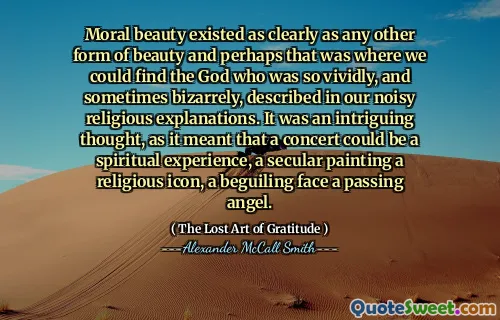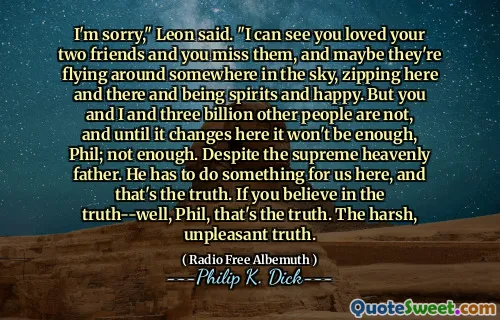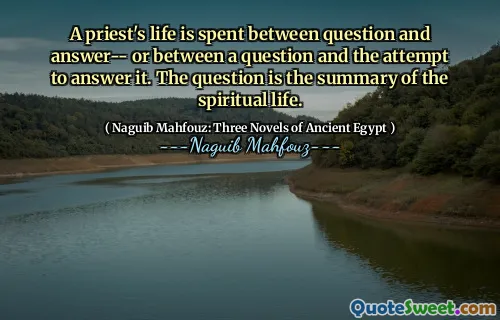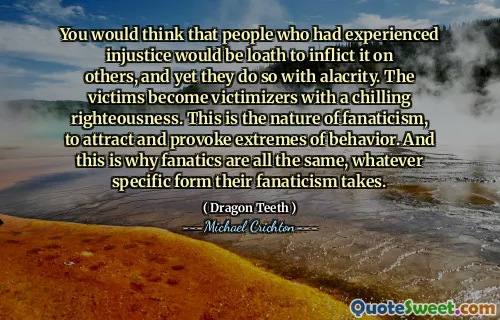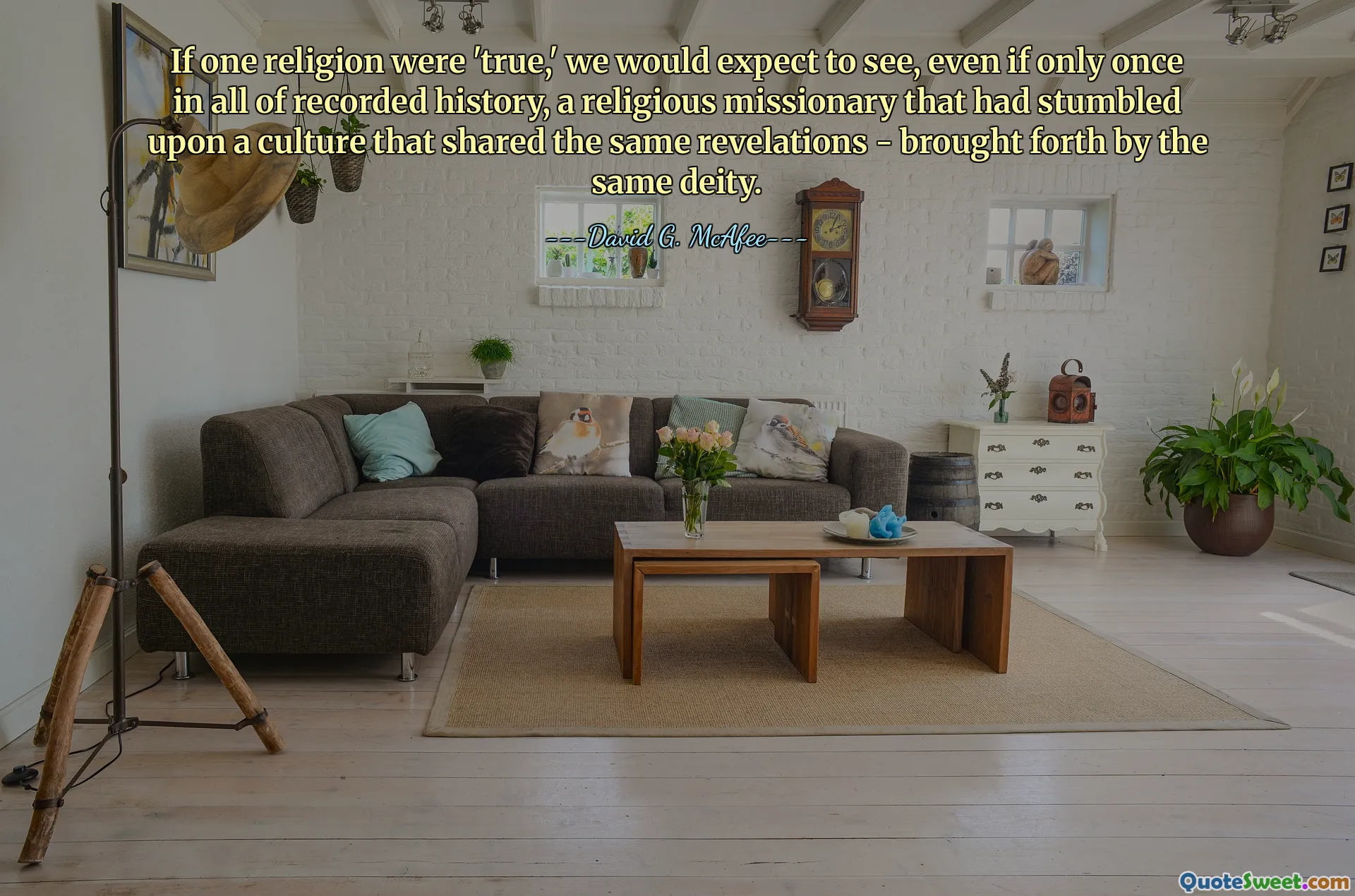
If one religion were 'true,' we would expect to see, even if only once in all of recorded history, a religious missionary that had stumbled upon a culture that shared the same revelations - brought forth by the same deity.
This quote raises compelling questions about the nature of religious truth and the consistency of divine revelation across different cultures and civilizations. It suggests that if any one religion were truly accurate and divinely inspired, there should be evidence of its universal recognition, especially through the experiences of missionaries who venture into unfamiliar lands and encounter similar revelations. The absence of such corroboration across diverse and isolated cultures challenges the idea of a single, exclusive divine truth. Instead, it points towards the possibility that religious beliefs may be more a reflection of cultural, historical, and psychological factors than of absolute, divine knowledge. The idea implicitly questions the claim of exclusivity made by many religions, urging us to consider how religious narratives develop and spread, and how they are further shaped by human cognition and societal influences. It prompts us to think critically about the evidence supporting various religions and encourages an exploration of the origins and universality of religious experience. Such reflections foster a broader understanding of spirituality, emphasizing humility and curiosity over dogmatism. Recognizing the diversity of religious thought can potentially lead to greater tolerance and appreciation for different faiths, highlighting that perhaps multiple paths can point toward understanding existence, rather than insisting on a singular divine truth. Overall, this quote invites us to critically evaluate religious claims through historical and philosophical lenses, seeking a deeper understanding of the complex relationship between belief, culture, and perceived divine intervention.






